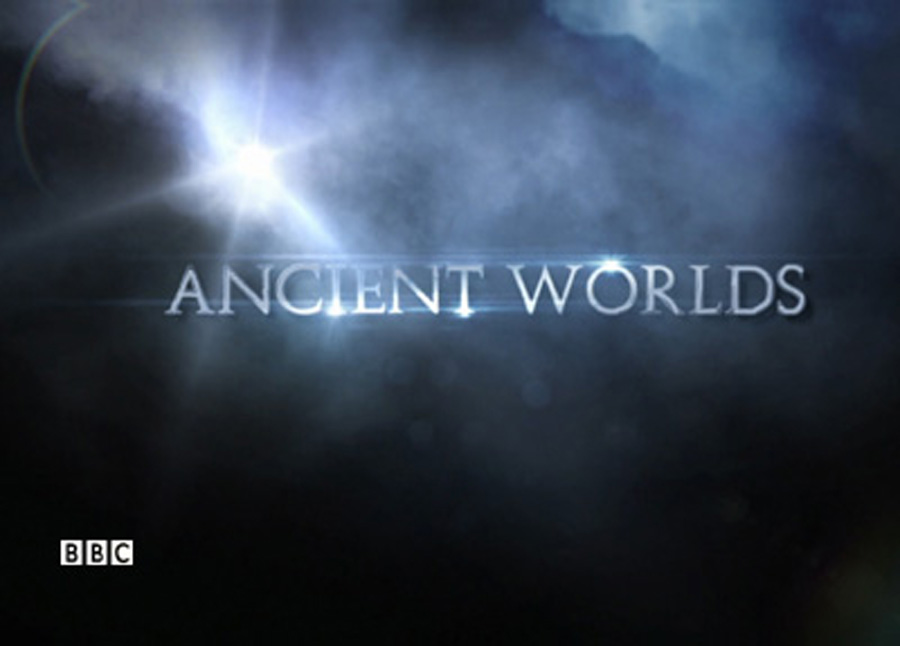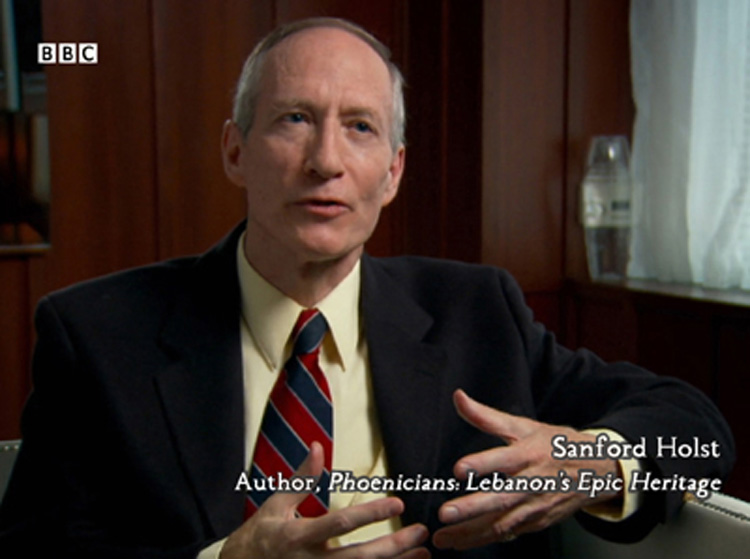
The BBC documentary program Ancient Worlds was first broadcast around the world in 2010. This unique and significant film recognizes the role of the Phoenicians, who interacted with many of the great societies of antiquity. Now you can see the program in its entirety on any device connected to the Internet.
This six-part series covers the time from the first cities rising in the Middle East to the fall of the Roman Empire in the West. The Phoenicians are revealed in sequences filmed in Lebanon and other parts of the Mediterranean where they traveled and established their many colonies.
The first version of Ancient Worlds was made with Richard Miles as the only presenter. However the program was then enhanced with experts from around the world adding richness and breadth to the material. This worldwide version gained additional depth on the Phoenicians by interviewing Sanford Holst, who is a member of the Royal Historical Society and author of Phoenicians: Lebanon’s Epic Heritage.
To See the Program
You can watch it at CuriosityStream.com on the Internet. If you sign up for the free trial subscription (good for one month), you can watch the program at no cost. Then you can decide later if you want to cancel the subscription. When you have access to their programs, go to the “Search” box in the upper right corner of the page and type “Ancient Worlds.” When the new page opens, click on the “Ancient Worlds” picture. A video will begin, but you can skip that and go to the images below it. Click on “Part 2: The Age of Iron” — the Phoenicians are covered there in many interesting video segments.
Ancient Worlds
The Phoenicians clearly existed prior to 1200 BC, since they were seen actively trading and contesting with the Egyptians, Mycenaeans and Hittites of that day. When the Sea Peoples destroyed or mortally weakened those other societies, only the Phoenicians had bargained well enough to remain standing. This enabled them to plant their colonies across the full length of the Mediterranean, and even on the Atlantic side of Spain and Morocco.
When the classical Greeks arose after the eighth century BC, Greek cities actively competed with the Phoenicians for trade and colonies, taking a large share. Rome created its Republic in the sixth century BC and began to trade — then compete — with the Greeks and Phoenicians. Carthage, the largest of the Phoenician colonies, stood as a major rival to the desires of the Greeks and Romans. In the Punic Wars — which is Latin for Phoenician Wars — Rome ended the long tenure of the Phoenicians. When Rome also completed the Macedonian Wars in Greece, it emerged as the dominant society in the Mediterranean.

BBC Two, which had primary responsibility for assembling this remarkable documentary, took pride in touching on things that were slightly controversial and attempted to deal with events in history as they actually happened. As they explain it, “The series offers an epic sweep of history against a panorama of stunning locations and bold propositions about the origins of human society.”

Further information
If you would like to experience more of the Phoenician world than you found in this article, the book Phoenicians: Lebanon’s Epic Heritage is recommended. It is deeply researched but also a highly readable exploration.
Going beyond the few traditionally-cited facts, this authoritative work also draws from interviews with leading archaeologists and historians on-site in the lands and islands where the Phoenicians lived and left clues regarding their secretive society.
Phoenicians
You can take a look inside this book. See the first pages here.
